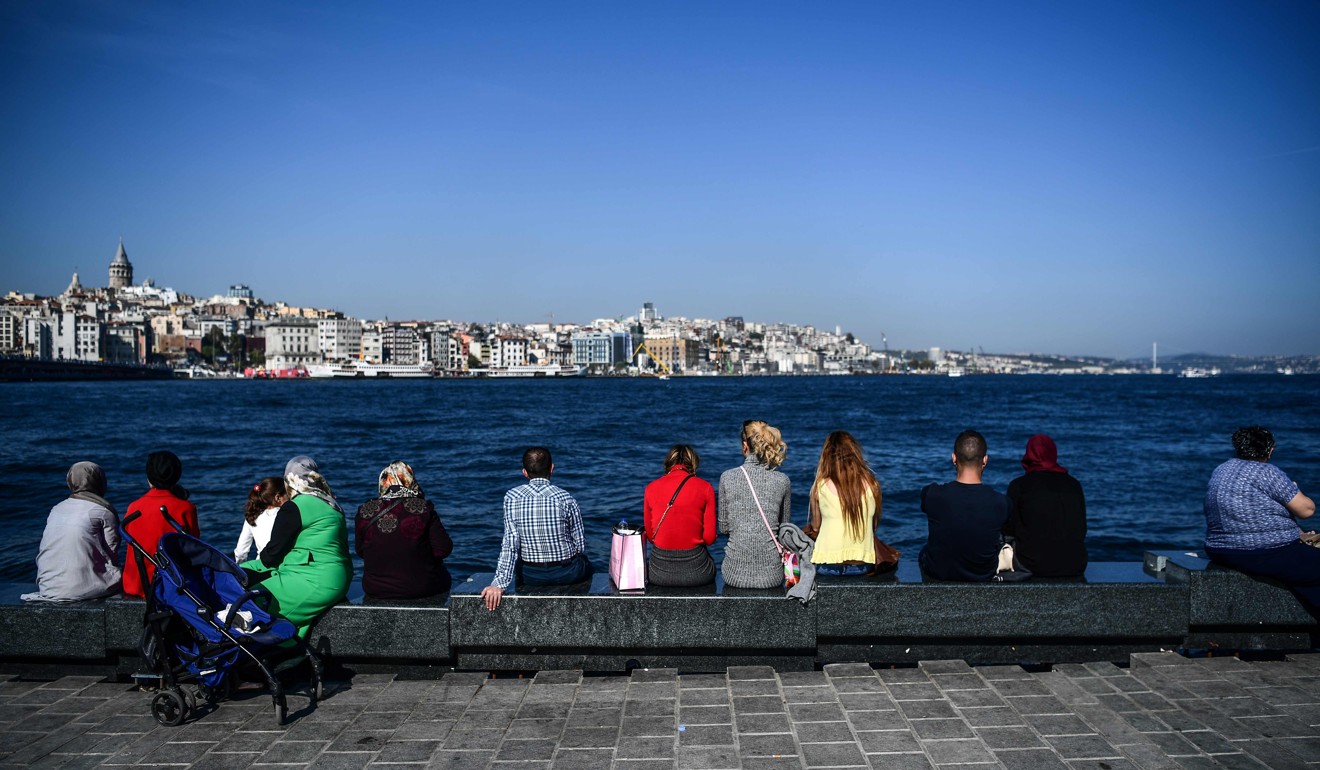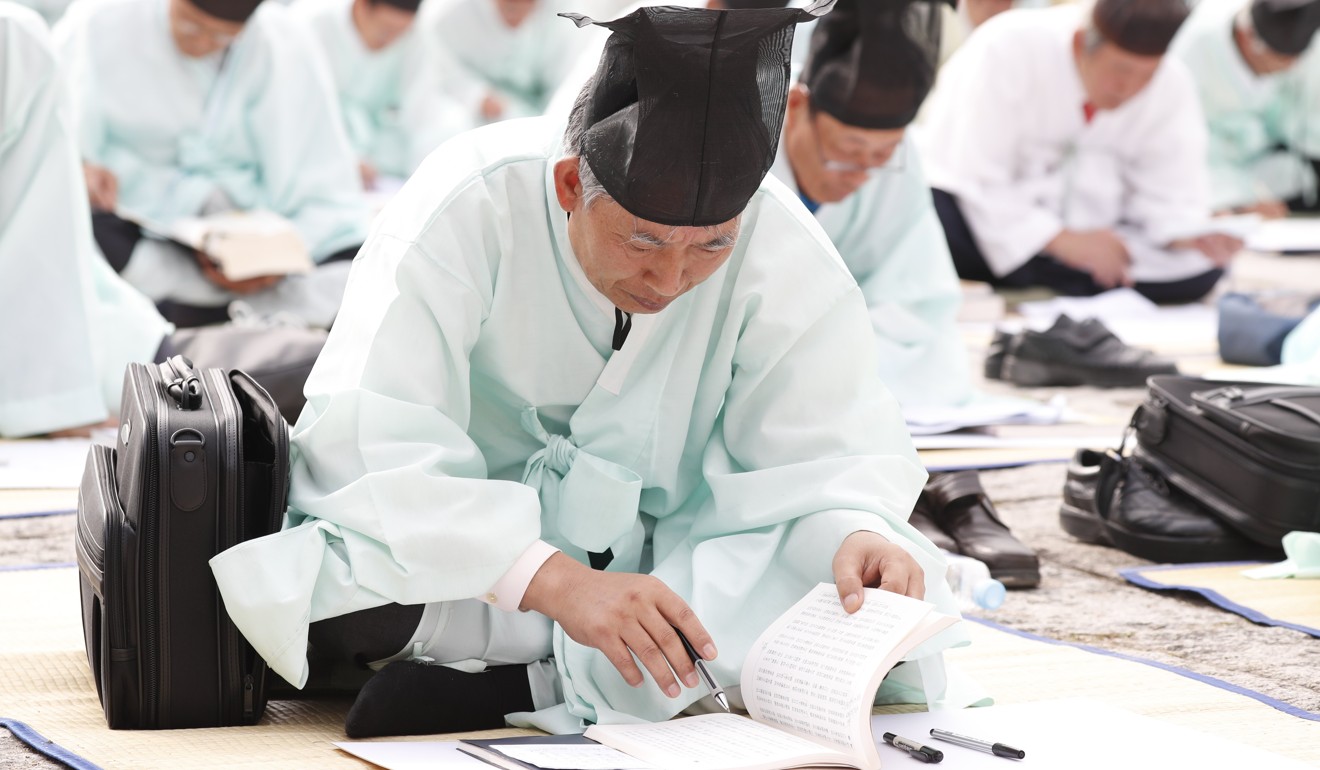风萧萧_Frank
以文会友
China’s rise is assured in our new world order, but not as a hegemony
Jean-Pierre Lehmann says though one major power dominated the past two centuries – Britain in the 19th and America in the 20th – in the 21st century, no single country will be calling the shots. Instead, the tussle for influence will be fiercest on the Asia-Pacific stage
Jean-Pierre Lehmann is emeritus professor at IMD, Lausanne, Switzerland, where he was appointed to the chair of international political economy in 1997. He has worked intensively and extensively across Asia for 50 years. He is founder of the Evian Group, an international coalition of corporate, government and opinion leaders united by a common vision of enhancing global prosperity for the benefit of all. He is currently visiting professor in the Faculty of Business and Economics at the University of Hong Kong and at NIIT University in Neemrana, Rajasthan, India
During most of my working life, I have commuted physically and intellectually between western Europe and East Asia, where I spent part of my childhood and where I have over the years lived, studied, worked and taught. Of course, to get from one to the other, one has to traverse the Eurasian continent. Which is what I did. In the late 1960s/early 1970s, for example, I would take a ship from Portsmouth to Leningrad (as it then was), a train from Leningrad to Moscow, a plane from Moscow to Khabarovsk, a train from Khabarovsk to Nakhodka, a boat from Nakhodka to Yokohama, then, the final leg, a train from Yokohama to Tokyo.
I would occasionally stop for a few days along the way. The icy cold war atmosphere notwithstanding, the warmth (and liquidity: lots of vodka!) of Russian hospitality lived well up to its reputation. I had read in my teens lots of Russian literature, and was enthralled when I read 15 years ago that splendid history of Russian culture, Natasha’s Dance by Orlando Figes. That was 15 years ago, a year after China acceded to the World Trade Organisation. In the meantime, academically I remained an East-West guy.
I watched, totally bedazzled, the transformations occurring in the Asia-Pacific, especially the awesome developments in China. As a product of the mid-20th century, I was influenced by the view that the words “poor” and “Chinese” were synonymous. This was true not only in the West – whether in Europe or the United States – but also in Japan. The Chinatown in Yokohama, which I occasionally visited in the 1950s with my parents (who lived at the time in Tokyo), was poor. In the second half of the 1980s, when I was based in Tokyo, as rumours of a potential Chinese growth story began circulating and Japan was experiencing stratospheric growth, I found Japanese I spoke to quite dismissive.
By the beginning of this century, the China narrative has been dramatically transformed, as has its impact on the world. The global balance of economic power is moving from West to East, as the Atlantic centuries seem to be entering their concluding chapters and an Asia-Pacific century emerges in the 21st.
Learning from China: three lessons for the ignorant West
hy the West and Japan should stop preaching to a rising China
Europe’s clout has declined, economically, geopolitically and demographically, and will continue to do so. The US remains a formidable power, but its days of hegemony are reaching their end. The institutions that Uncle Sam put together after the second world war – the United Nations, the World Bank, the International Monetary Fund, the WTO – are becoming moribund. George W. Bush’s illegal invasion of Iraq in 2003 and its catastrophic consequences have undermined American geopolitical and moral leadership; while Donald Trump’s bombastic “America First” rhetoric provides a sort of tragic operatic finale. How embarrassing it must be for Americans to witness this Caligula-like figure drag the country down into barbarity. As Angela Merkel confirmed in her speech in Munichin May, the Western alliance, founded after the war by the US and the UK, is eroding.
The fact that the world is at a turning point is beyond dispute. Where it is turning to is another matter. Because the last two centuries have been dominated by one major global power – Britain in the 19th, the US in the 20th – there is an assumption that it must be someone else’s turn. (Presumably, China?)
In fact, as author Ian Morris compellingly argues in Why the West Rules – For Now, the history of the Eurasian continent – where civilisations flourished and history was made – was one of exchange, mutation and what we would call today, “multipolarity”. Rudyard Kipling’s famous “East is East and West is West” poem portrays a 19th-century imperialist view of the world, and does not correspond to historical reality. Throughout the millennia, Eurasian societies, emanating from five major civilisations (Chinese, Indian, Persian, Arabic and European), fought with each other, traded goods, sciences and ideas with each other, as they learned and borrowed from each other. There was no East and West, Europe and Asia. Arabic thought influenced the Renaissance; Confucian thought influenced the Enlightenment; India invented and developed the zero.
How China played a part in the birth of globalisation in the 16th century
Things began changing with the rise of the Portuguese seaborne empire in the late 15th century. Initially incrementally, then, from the early 19th century on, rapidly and radically, Europe rose as virtually all of Asia declined. Europe’s “superiority” ensured Asia’s subjugation. This century is witnessing the resurgence of Asia; especially the rise of China as a global power. The idea, however, that the world was following a pattern and that China would emerge as the coming hegemon seems unconvincing.
Whether China can be different, whether it can achieve its ‘peaceful rise’, will be the dominant question this century
Not clear as to where we’re now heading, I was intrigued when I read President Xi Jinping’s speech in Astana on September 7, 2013, in which he launched what has since become known as the “Belt and Road Initiative”.
I have made a considerable effort over the past four years to become more immersed in Eurasian and Central Asian historical patterns, contemporary dynamics and future prospects. I have travelled not just physically, but also intellectually across much of the Eurasian continent. This has included most recently an intensive week of discussions in Moscow with Russian interlocutors from different professions and generations (including a high-school class of 15-year-olds) to hear how they see the world.
Here, I wish to emphasise the concept that Dmitri Trenin, director of the Carnegie Moscow Centre, introduced me to, and which I found very useful in constructing my new view of the world. Whereas recently, there has been much talk of whether Russia is pivoting to the East or maintaining its historical ties with Europe, Trenin speaks of a “360-degree vision, where Moscow serves as the central element of a new geopolitical construct: Eurasia writ large, aka Greater Eurasia”.

In this Greater Eurasia are the former great civilisations and great powers: China, India, Mongolia, Korea, Japan, the members of the Association of Southeast Asian Nations(especially Indonesia), the countries of Central Asia and the Levant, Russia, Turkey and the European Union. The EU’s past was integrated into that of Eurasia, and so, it would seem, will be its future. As Merkel implied in her speech in May, with Brexit and the election of Donald Trump in 2016, the Western alliance has reached its twilight.
Xi Jinping isn’t just reforming China, he’s creating an alternative to the West
In this Greater Eurasian space, China clearly dominates. Its gross domestic product is roughly 10 times the size of Russia’s and more than five times the size of India’s. But for a number of reasons, there will be no Chinese hegemon comparable to the UK or US. China is unlikely to match the US in hard power, and its soft power is weak.
The UK and the US gained hegemony in part by waging brutal imperialist wars and enforcing exploitative subjugation on much of the world – in Asia, Africa and Latin America. Whether China can be different, whether it can achieve its “peaceful rise”, will be the dominant question this century. Greater Eurasia is full of exciting potential. It is also, however, a geopolitical cauldron. Whatever happens, the narrative of the 21st century will be written there.
Jean-Pierre Lehmann is emeritus professor at IMD, founder of The Evian Group, and visiting professor at the University of Hong Kong






